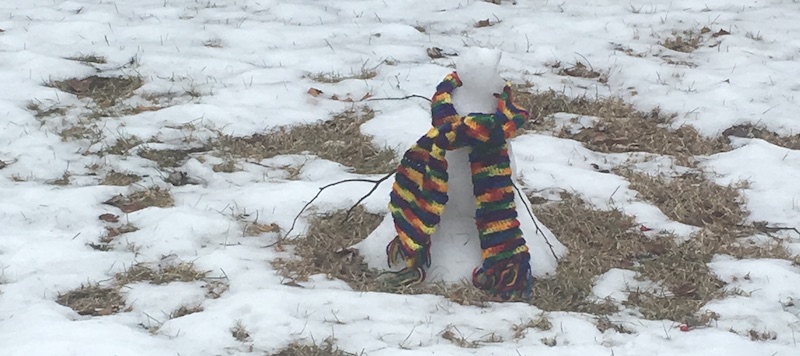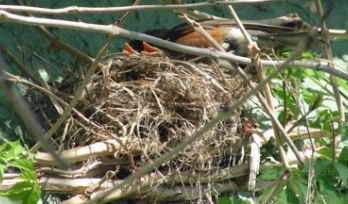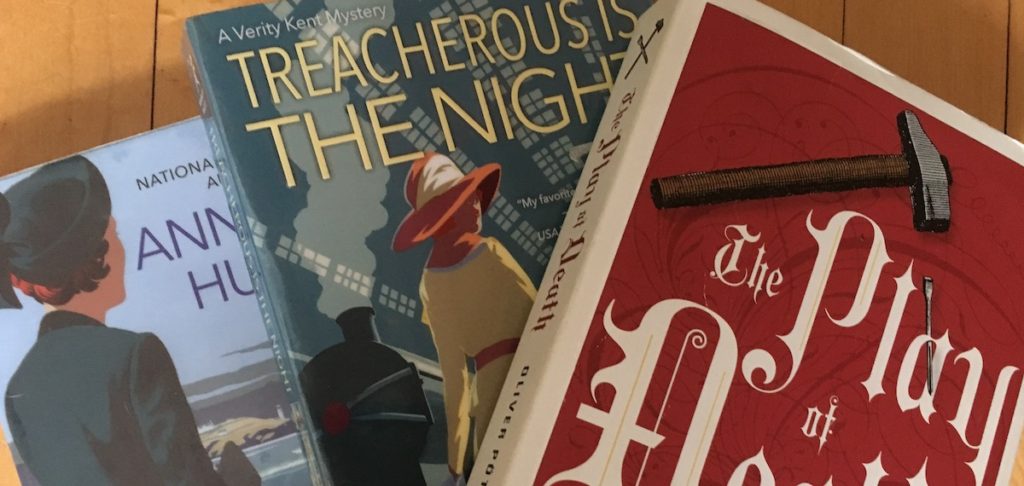
Spring is coming. I know this because my front yard and at least one neighboring yard filled up this morning with a hungry flock of migratory robins and starlings. There were probably about 30 birds in all, voraciously grabbing up food of some sort from the ground. My bet is on juniper berries, given the tree they flocked under.
It’s too early for our summer robins to arrive yet, and I was surprised to find robins paired with starlings, so I went searching for info: Do robins, in fact, migrate with starlings? I learned that mixed flocks aren’t uncommon, at least among fruit-eating birds. I didn’t see starlings listed specifically as birds that migrate with robins, but they are migratory. It’s possible that our local starlings saw robins descend to the ground to dine and got attracted to a possible food source, but the fact that they all pretty much arrived and left together suggests to me they were a mixed flock.

So spring is coming. Hooray! I’m happy for the reminder because last weekend January turned to January for pretty much the first time. We got a downpour of rain followed by a driving snowstorm, and then a brilliantly clear blue day; blue sky in January is pretty much synonymous with a cold snap in Illinois, so we did a bit of shivering and made soup and put our sandwiches under the broiler for a couple of days.
It’s warmed up since then, but with the snow came a lovely visitation of snowmen all over the neighborhood. This guy was my favorite, very cheery and bright, but laced through with dead leaves because of the rain that came before the snow.
With a hint of spring in the air today (temperature only 35, but no wind, and … remember … robins!), those snowmen that have survived are much less distinct. One looked much more like a seated snow dog than a man. Today’s favorite … this little guy, nearly headless but so nicely scarved:

Reading for the season
I’m looking for a good almost-spring book. If you are, too, I have one good suggestion: The Hidden Life of Trees: What they Feel, How they Communicate, by Peter Wohlleben. I read it this winter, and it’s full of miraculous information about the life of forests, which seems just perfect for spring. For now, I’m reading my garden catalogs and plotting my seed order. It’s one of my favorite January-February pastimes, and I’m contemplating a raised vegetable bed this year, so the possibilities feel endless.
Robins and starlings: Fun links




